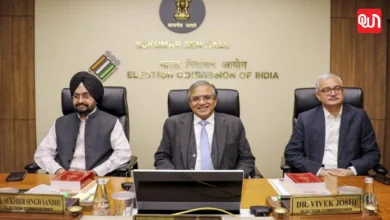Bar Council Allows Foreign Lawyers and Law Firms to Practice in India

Bar Council opens some sectors for foreign lawyers and firms to work in
The Bar Council of India, in its notification on 10th March titled ‘Bar Council of India Rules for Registration and Regulation of Foreign Lawyers and Foreign Law Firms in India, 2022’ has made it possible for foreign lawyers and law firms to practice in India. Let us take a deep dive into this notification, what it means and how it will impact us.
For many years, the legal profession in India has been largely closed to foreign lawyers and law firms. This was due to the Bar Council of India rules, which stipulated that only Indian citizens could practice law in India. However, in recent years, there has been a growing recognition that the legal profession in India needs to open up to international competition in order to remain relevant and competitive in the global marketplace.
What does the notification say?
- The notification cited the different landmark cases that have helped shape the entry of foreign lawyers and firms in the country for so long. Cases such as A.K. Balaji Versus Govt. of India (2012), Pravin C. Shah versus K.A. Mohd. Ali and Ex. Capt. Harish Uppal versus Union of India were discussed.
- The foreign lawyer and law firm should be registered in India with the Bar Council of India.
- Once registered, the certificate is valid for five years and has to be renewed after that.
- A foreign lawyer can practice in India in non-litigious matters.
- The Bar Council of India has ensured that even though foreign lawyers and law firms are allowed to practice in India, they can do so only in a well defined, regulated and controlled manner.
- Foreign law firms have also been allowed to open their offices in India, but have to keep the Bar Council informed of the details.
- They have to comply with the same ethics and practices under the Advocates Act, 1961, and Rules.
- The notification also mentions the security amount, registration fees, renewal fees, guarantee amount, etc. that needs to be paid by the foreign lawyers and law firms.
What areas can they practice in, and what are they not allowed to do?
Foreign lawyers and firms have been allowed to work “on transactional work /corporate work such as joint ventures, mergers and acquisitions, intellectual property matters, drafting of contracts and other related matters on reciprocal basis.”
Read more:- Kailasa: The Fake Nation That Duped 30 US Cities
They have not been “permitted to appear before any courts, tribunals or other statutory or regulatory authorities.” They also cannot be involved in matters dealing with “conveyancing of property, Title investigation or other similar works.”
What will be the impact of this?
There are many potential benefits to allowing foreign lawyers and law firms to practice in India. First and foremost, it will bring new ideas and perspectives to the legal profession and will help to raise the overall standard of legal practice in India. It will also increase competition within the legal sector, which should lead to greater efficiency, lower costs and better services for clients.
However, there are also concerns that the move could lead to a loss of business for Indian lawyers and law firms, and could potentially undermine the Indian legal system. There is also apprehension that the move could lead to a dilution of the Indian legal system, with foreign lawyers bringing in their own legal traditions and practices. However, with the rules set by the Bar Council, boundaries have been drawn to ensure that this system runs smoothly.
Like this post?
Register at One World News to never miss out on videos, celeb interviews, and best reads.







